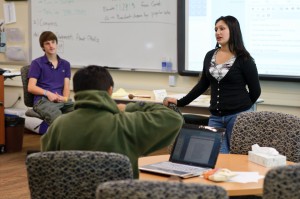
Lenny Gonzales
All too often, schools find that they've invested heavily in education technology only to see these tools unused or classroom instruction unchanged.
That was one of the realizations of the Oak Hills Local School District (OHLSD), a tech-friendly district in Cincinnati, Ohio. Even though the district had adopted an "anywhere, anytime, any device" policy, school officials found that technology simply wasn't being used all that frequently in the classroom. It was clear that a different level of support was necessary, beyond typical professional development.
So the district devised a program to help teachers and students take full advantage of the tech resources by turning to an under-utilized but incredibly valuable resource: its students.
Tracy Pirkle, OHLSD's director of curriculum and e-learning, created a pilot program last year called eKIDS (eLearning Kids in Demand) that turned a handful of seventh-graders at each of the district's middle schools into "e-learning consultants."
Now, these consultant/students are equipped with computers and software that they use both at school and at home. Students choose the technology they want to learn about or specialize in. "The kids push the envelope," Pirkle said, pointing to student projects that include learning about things like the programming language Scratch and taking on responsibility for assembling new tech equipment and prepping its Bluetooth connectivity.

